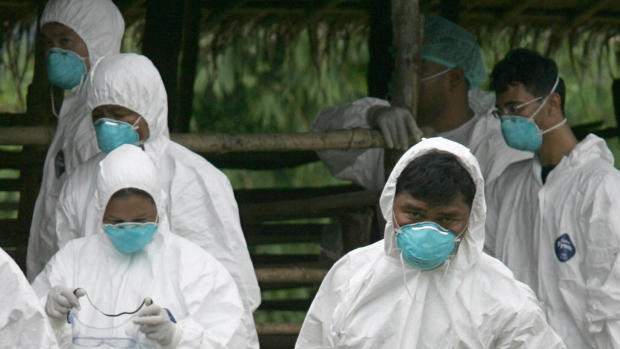Superbugs a major threat to hospital patients
The overall number of healthcare-related infections has gone down in the United States, but hundreds of thousands of Americans still get sick from them each year, often with antibiotic-resistant superbugs that can be deadly, according to a new report from the Centers of Disease Control and Prevention.
"New data show that far too many patients are getting infected with dangerous, drug-resistant bacteria in healthcare settings," said CDC Director Dr. Tom Frieden said in a statement. "Doctors and healthcare facilities have the power to protect patients -- no one should get sick while trying to get well."
The CDC reports that at any given time in the U.S. 1 in 25 patients has at least one healthcare-acquired infection (or HAI). An estimated 722,000 healthcare-acquired infections occurred in 2011, and about 75,000 of these patients died.
According to the new CDC report, 1 in 7 catheter and surgery-related infections are caused by any of six antibiotic-resistant superbugs, including methicillin-resistant Staphylococcus aureus (MRSA) and "nightmare bacteria" carbapenem-resistant Enterobacteriaceae (CRE).
In long-term acute care hospitals that treat very sick patients, number jumps to 1 in 4.
"Antibiotic resistance threatens to return us to a time when a simple infection can kill," Frieden said in a press conference today.
The report did show some improvement, with a 50 percent decrease in bloodstream infections stemming from a central line -- a catheter that doctors often place in a large vein in the neck, chest, or groin to give medication or fluids -- between 2008 and 2014. There was also a 17 percent decrease in surgical site infections over this time period.
The researchers also looked at Clostridium difficile, or C. difficile, which caused almost half a million infections in the U.S. in 2011 alone. The new data showed some improvement, with an 8 percent decrease in hospital-acquired C. difficile infections between 2011 and 2014.
The report calls on all doctors and healthcare providers to do their part in preventing hospital-acquired infections by preventing the spread of bacteria between patients, preventing infections related to surgery or catheter placement, and responsible use of antibiotics.
"For clinicians, prevention means isolating patients when necessary," Dr. Clifford McDonald, Associate Director for Science at CDC's Division of Healthcare Quality Promotion, said in a statement. "It also means being aware of antibiotic resistance patterns in your facilities, following recommendations for preventing infections that can occur after surgery or from central lines and catheters placed in the body, and prescribing antibiotics correctly."
In response to the report, Dr. Louise-Marie Dembry, President of the Society for Healthcare Epidemiology of America said: "We know how to prevent many HAIs. Healthcare facilities and healthcare systems need to invest in keeping patients safe by ensuring infection prevention best practices are implemented and followed and stewardship strategies are in place to help clinicians make informed decisions about the antibiotics they prescribe for their patients."
Patients can also take steps to protect themselves by asking doctors, visitors and anyone who enters their room to wash their hands before approaching and wiping down all high-touch surfaces, including bed rails, bed tables, call buttons, and the TV remote control with bleach wipes.
"The good news is that we are preventing healthcare acquired infections, which has saved thousands of lives," said Dr. Patrick Conway, Deputy Administrator and Chief Medical Officer at the Centers for Medicare and Medicaid Services. "The challenge ahead is how we help to prevent antibiotic resistance as well as infections. We are using incentives, changes in care delivery, and transparency to improve safety and quality for patients."

